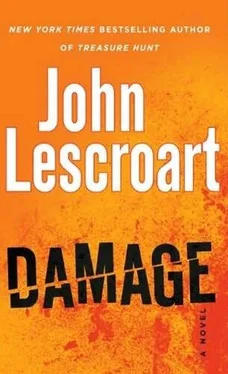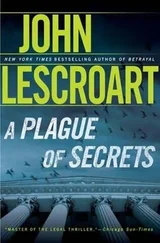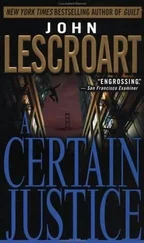“Your Honor.” Jenkins stood up next to Farrell and tried with only minimal success to keep her voice neutral. “With respect, as Mr. Farrell has already said, the people seek no bail at all. Not even at the ten-million-dollar level. That the defendant has been allowed back on the street at all is a mockery of the judicial process.”
“Now, now,” Donahoe said. “I don’t know if that’s a little too strong…”
“It’s a mockery, all right,” Denardi said, again rising and getting into the act. “But it’s these charges that are a mockery. Not only fabricated and vindictive, they’re-”
“All right, all right, Mr. Denardi, that’s enough. I take your point. Now just give me a minute here, would you all?” The judge looked down and ruffled through some pages in front of her. Picking up her pen, she made a few notes while the courtroom hung in suspense. Finally she looked up and offered a confident smile first to the prosecution table, then over to the defense. Mixed signals everywhere it was possible to send them. “I think Judge Baretto’s set a bit of a precedent here. Due to the questions about the legality of the arrest itself and so forth, I believe a reasonable bail would be five hundred thousand dollars.”
At these words, the courtroom exploded into applause that got interrupted by Jenkins, who could no longer restrain herself. “Your Honor!” she exploded.
“Oh, counsel,” Donahoe said. “There’s no jury here. You don’t have to make a speech to impress anybody. You know as well as I do that defendants have rights. We’ll get to the bottom of all this”-apparently one of Donahoe’s pet phrases-“the charges and so on, after the preliminary hearing. And at that time, I’m making a note to revisit the bail question in light of the facts that come out during that hearing.”
Another wave of what was clearly approbation made itself felt in the gallery, and Donahoe smiled, acknowledging that she’d made a crowd-pleasing decision. “Now, Mr. Denardi,” Donahoe went on, “I assume that you’d have no objection to waiving time.”
She was asking the defense counsel if he’d agree to postpone the preliminary hearing of his client beyond the ten days that the law provided. And of course it was to Ro’s great advantage that Denardi did this. And then he’d waive time after the preliminary hearing so the trial wouldn’t start within the sixty days the law provided, either. In fact, this was the beginning of the defense’s orchestrated delaying tactics that could postpone a trial for a year or more.
“Your Honor!” Again Jenkins stood, although by now she was running out of steam. “The people object to waiving time.”
Donahoe looked not unkindly down at her. “Thank you, counsel, but of course counsel is entitled to time to prepare. Mr. Denardi?”
“Defense will waive time, Your Honor. We’re going to need considerable time to do a background check on these arresting officers. Two months from today to set?”
“Granted.”
“Thank you.”
“You’re welcome.” Donahoe looked down for one last time at Farrell and Jenkins and gave them a slight shrug of her shoulders, as if telling them she didn’t have much of a choice in the matter of her rulings. Then, moving along, she nodded to her clerk. “Call the next line,” she said.

Everybody was standing up, clearing room for the next case.
Durbin watched Ro Curtlee break into a smile and rise at the defense table with his attorney. Turning around, Ro reached over the bar rail, nodded at the mayor, shook his father’s hand, and put an arm around his mother, drawing her in with a hug.
No sign of pain now, Durbin noted. No hint of hangdog.
“What a travesty,” he whispered to his brother-in-law. “I’m trying to believe this, and I don’t know if I can.”
“It’s a great country,” Novio said. “You gotta love it.”
Durbin found that he couldn’t keep his eyes off the man he’d helped send to prison so many years ago. Ro broke from his mother’s embrace and looked out over the gallery. When his eyes got to Durbin, he stopped for a long beat.
Could it be that he recognized him?
Durbin quickly looked down and away, avoiding eye contact, his heart suddenly a pumping jackhammer in his ears. When he felt it was safe, that Ro had moved on to someone else, he again looked up. Sure enough, Ro’s gaze had now brought him back around to the front, where Glitsky and Lapeer and the two younger officers had come up to the bar rail by Farrell and Jenkins, all of them clearly dejected and angry.
Durbin might have been afraid to have any eye contact with Ro Curtlee, but that didn’t seem to be Glitsky’s problem. When Ro’s line of sight got to the lieutenant, the two of them stared at each other for a long moment. Ro put his smile back on, shook his head as though they’d all just enjoyed a good prank together, and pointed a finger at Glitsky. Then, to Durbin’s shock, he cocked his thumb and “shot” him.
Glitsky didn’t react in any way. His face a solemn mask, the scar white through his lips, he kept up his stare until, at last, Ro looked away.
“Jesus,” Durbin said.
“What?”
“You see that?”
“Yeah, I did. Your Ro’s a pretty ballsy guy.”
“He scares the shit out of me. I think he might have just recognized me.”
“And what would that mean?”
“I don’t know.” Durbin threw a quick glance back up to the front, where Ro was still talking to the mayor and his parents and his attorney and one of the bailiffs, trying to get them moving, get him out of the jail clothes, and get his new bail processed. “Maybe nothing,” Durbin said. “But if it is anything, it’s trouble.”
“After all these years, I don’t think so.”
Durbin shrugged. “I hope you’re right.” He breathed out heavily. “Maybe I shouldn’t have come down here to see this. If he’s going after people from his last trial and he sees me…”
Novio put a hand on Durbin’s arm. “Easy, Michael. If he went after this woman from his last trial, it was because she was going to be part of his next one. You, not the same at all.”
“Okay. I guess you’re right.”
Why, Durbin wondered, had he come down here after all? Probably, he thought, because he had wanted to see his work finished at last, this criminal back in jail where he forever belonged. And now that had not happened and he suddenly realized that he was very frightened-he didn’t want any part of Ro or any of the Curtlees even marginally aware of his own life.
By now the rows behind them had cleared and they started filing out with the crowd. In a couple of minutes, they were outside in the hallway, Durbin now anxious to be gone, to be no part of this anymore.
But the hallway was a crush of humanity, only a small percentage of it moving toward the stairway. Everybody else milling, talking, caught up in the drama, maybe waiting for the opportunity to rub an actual elbow with the mayor.
Durbin made a half turn into an opening before him in the throng and found himself shoulder-to-shoulder with Sheila Marrenas. She had her microphone out and was interviewing some of the random people who’d been inside the courtroom. Durbin had no sooner recognized her than she turned and stuck the microphone up into his face. “Hello, Sheila Marrenas of the Courier . Quick comment, sir. In light of what we heard in there about the arrest of Ro Curtlee, do you think that we’ve got a serious problem with police brutality here in San Francisco?”
Before he’d even thought about it, he found himself answering. “Not really, no. Nowhere near as serious as the problem with judges continuing to give rapists and murderers a get-out-of-jail-free card.”
Читать дальше













